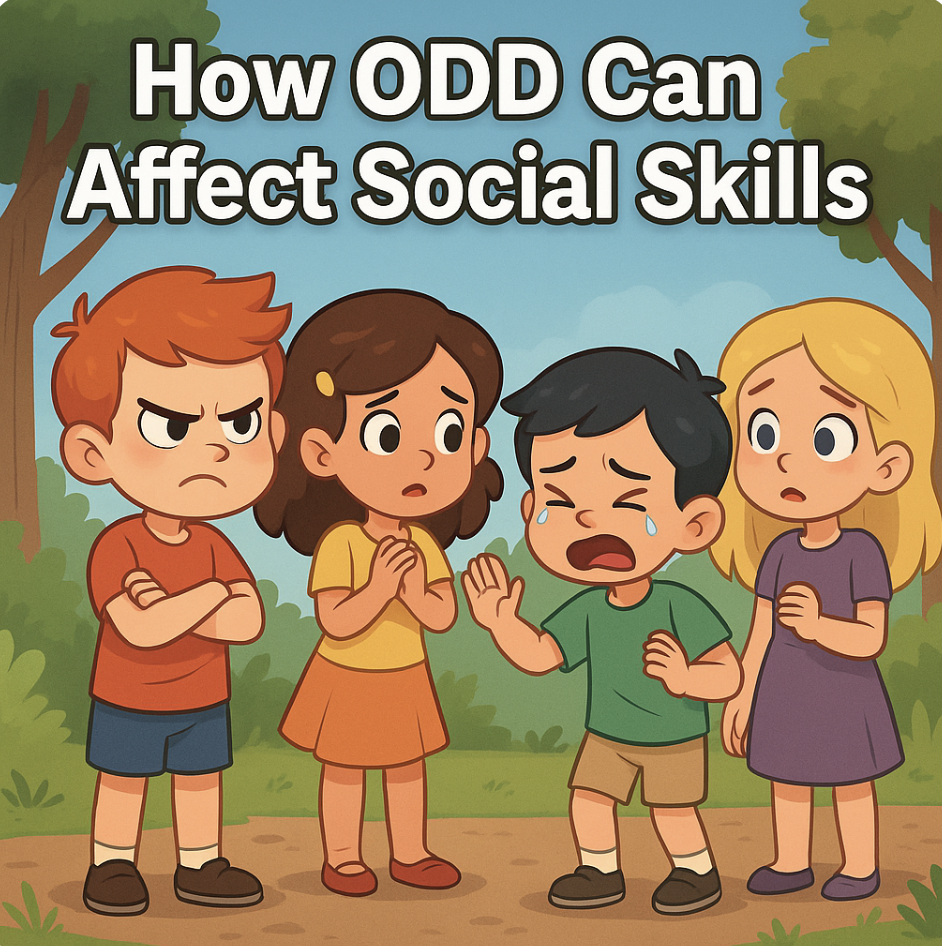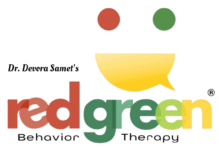(1.5-minute read)

How ODD Can Affect Social Skills
In previous blog posts, we’ve explored how ADHD and anxiety can interfere with a child’s ability to connect with others. This week, I want to take a closer look at Oppositional Defiant Disorder (ODD) and how it can impact social development.
Children with ODD frequently lose their temper, are easily annoyed or angry, argue with adults or authority figures, refuse to follow rules, deliberately annoy others, blame others for their own mistakes, and act spiteful or vindictive. While these behaviors are often directed at parents, teachers, and other authority figures, they can spill over into peer relationships too—creating real challenges with building friendships and relationships.
How ODD Impacts Social Skills
🙅♂️ Difficulty with Cooperation and Flexibility
Kids with ODD often dislike being told what to do—by adults or peers. Therefore, they may resist group rules, refuse to take turns, or argue over how games should be played. This makes it hard for them to play games at recess or be part of a team working on a school project, such as a science fair or history project.
😠 Frequent Conflicts with Peers
Children with ODD tend to argue, blame others, and react with anger when something doesn’t go their way. These behaviors lead to frequent fights, hurt feelings, and ruined friendships.
💥 Emotional Reactivity
Kids with ODD often struggle to manage their feelings, which can scare or confuse their classmates—especially when a simple misunderstanding leads to a major emotional explosion.
🔍 Misreading Intentions
Sometimes, a child with ODD assumes others are out to get them—even when they’re not. This “everyone’s-against-me” mindset can lead to frequent conflicts. In fact, they destroy potential friendships before giving them a chance to thrive.
🚫 Peer Rejection and Reputation
Over time, a child with ODD may be labeled as “mean,” “manipulative,” or “aggressive.” Even when they try to behave differently for a change, their classmates and peers may be hesitant to trust them. This can lead to loneliness, low self-esteem, and a cycle of more reactive behavior—especially when they’re convinced that nobody likes them.
The Good News
Children with ODD are not intentionally “bad.” They’re struggling from their own stuck and rigid thinking patterns and behaviors—and they need to learn skills. For example, Red Green Behavior Therapy (RGBT) can be incredibly helpful. By identifying red behaviors (like yelling, blaming, or refusing) and replacing them with green behaviors (like asking calmly, accepting responsibility, and cooperating), they can overcome their challenges and become healthy, functional adults with beautiful, fulfilling lives.
Interestingly, ODD is one of the few disorders that is completely curable. I remember years ago noticing a pattern: a number of my ODD students progressed to the point that they no longer qualified for an ODD diagnosis. I was curious if the research supported the idea that it was curable—and discovered that it was true.
The most important thing? These kids can grow and overcome ODD. With clear expectations, consistency, and the right strategies, children with ODD can learn to manage their feelings, improve relationships, and find real success socially.
